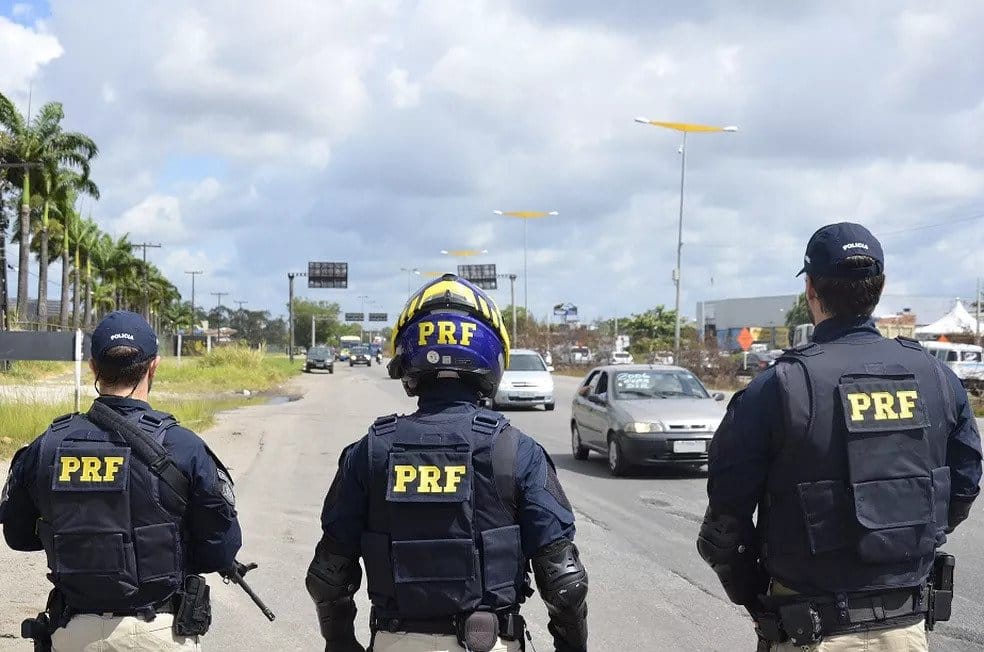A new investigation in Brazil has revealed how President Jair Bolsonaro turned the country’s highway police into a model for his national security plans, leading to an alarming rise in killings.
An August report in the investigative magazine, Piauí, laid out how Bolsonaro systematically allocated more resources to the Federal Highway Police (Polícia Rodoviária Federal – PRF). Since coming to power, he has dramatically increased its budget, expanded its roster by over 3,000 officers, and handed it a fleet of armored vehicles.
But this has come at a high cost. The PRF has begun investigating and arresting people in parts of Brazil outside its traditional jurisdiction, including parts of the country with no highways. Worse, it is killing a lot more people. Piauí found that in 2019, when Bolsonaro took power, PRF personnel killed just four people. This has since risen rapidly, according to official statistics, reaching 16 people in 2020, 35 in 2021, and 38 people in the first half of 2022. The actual numbers may be far worse.
SEE ALSO: Rage, Rinse, Repeat – The Futile Cycle of Anger at Rio’s Police
In October 2021, according to Piauí, PRF officers took the lead in a controversial raid in Varginha, a town in the central state of Minas Gerais. Twenty-six reported criminals were shot dead, with no loss of life among security forces.
At the time, police commanders stated that the raid was justified, as the alleged gang members possessed an arsenal of high-caliber weapons they allegedly planned to use for a series of violent bank robberies.
However, Piauí’s investigation found that the PRF conducted a series of reportedly illegal moves in the lead-up to the raid, including illicitly tapping a suspect’s phone and monitoring the gang before the attack. The report also interviewed police officers who stated that the PRF was always planning to kill the entire gang, instead of taking them prisoner.
“The objective of the Federal Police was to initiate a formal investigation, gather evidence against the gang, request arrest warrants, and only then start the operation, putting everyone in jail. That’s how it works. When we realized that the Highway Police wanted to kill everyone without investigating anything, we abandoned it,” said one federal police officer on condition of anonymity.
Finally, the investigation by Piauí made an even more somber allegation: Some of Brazil’s worst killings have been blamed on other security forces to hide the full involvement of the PRF.
This included a May 2022 raid in Rio de Janeiro’s Vila Cruzeiro favela that targeted the Red Command (Comando Vermelho – CV) gang and left 23 people dead, as well as allegations of executions and torture. On Twitter, President Bolsonaro praised the military police and special forces (Batalhão de Operações Policiais Especiais – BOPE) for the raid. But according to Piauí, the PRF planned the raid, 41 of its officers took the lead in entering the favela and were responsible for most of the shots fired. Five of those same officers had reportedly taken part in the Varginha killings.
InSight Crime Analysis
It might be tempting to dismiss the violent involvement of the highway police. After all, the killings officially attributed to the PRF pale in comparison to the more than 6,000 people killed altogether by police in Brazil every year.
However, the revelations by Piauí show how one of Brazil’s least violent security institutions has been thoroughly transformed by Bolsonaro’s vision for his police forces. Abuses by the PRF are becoming worryingly commonplace and not always on the scale of the Varginha and Vila Cruzeiro massacres.
SEE ALSO: Rio’s Campaign Against Red Command Achieving Little But Increasing Body Count
On May 25, 2022, Genivaldo de Jesus Santos, a Black man who suffered from schizophrenia, was stopped by five PRF officers along a highway in the northern state of Sergipe for not wearing a helmet. Although he seems to have complied with police orders, the officers beat Santos, pepper-sprayed him in the face, and placed him in a chokehold. He was then placed head first inside the boot of a police car, with his legs sticking out of the vehicle. A gas grenade was then thrown inside the car, and Santos died of asphyxiation as a result.
The outcry from Santos’ death has shone a light on the actions of the PRF. An investigation is ongoing into the five officers involved, although there are severe doubts as to what its conclusions will be. When state prosecutors of Sergipe asked for copies of the disciplinary records of those officers, the PRF responded that this was “personal information” and would be sealed for 100 years.

